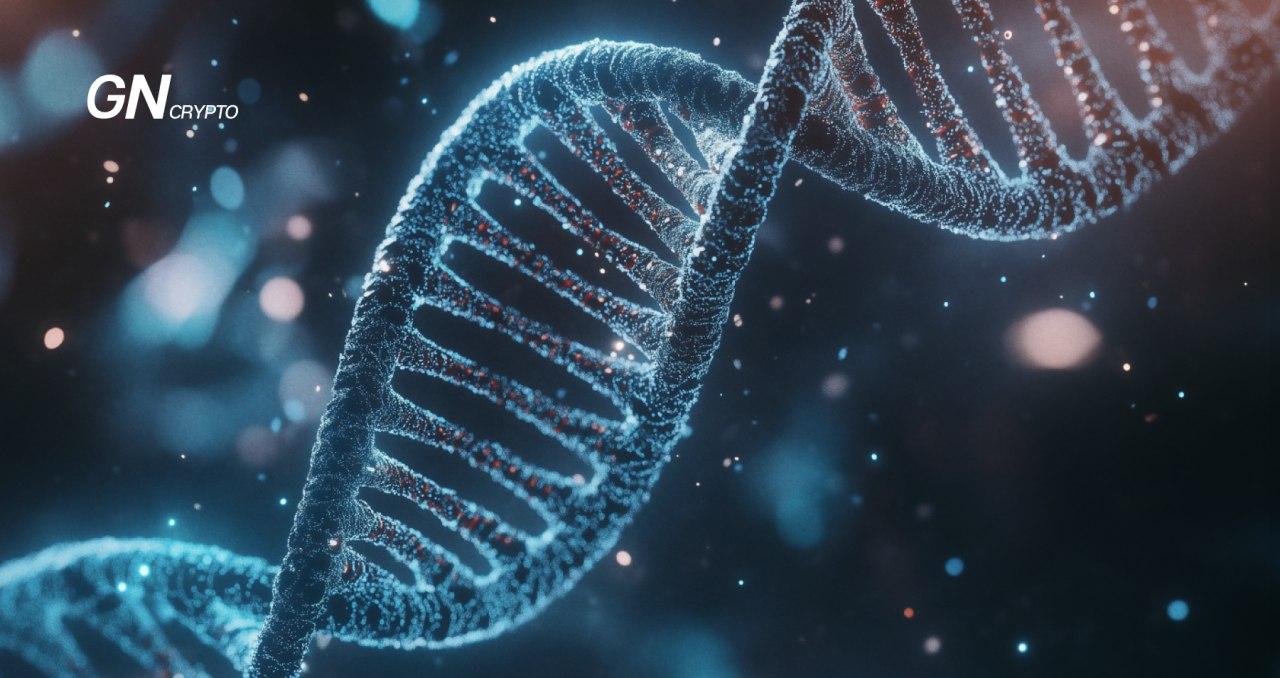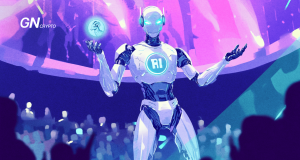What Is Biohacking and What’s AI’s Role in It?

Biohacking is a movement around the human body to improve a person’s physical and mental health, performance and capabilities. With current AI tools for tracking sleep, stress levels, diet, and other information, people have a range of options to learn about themselves and improve the quality of their lives.
On this page
Also called Do It Yourself (DIY) biology, biohacking states that everyone is accountable for their health and can use different methods to improve their well-being without having a medical degree. According to Scientific Literature, the biohacking movement started in 2008 to change the traditional approach towards science and technology. Among its participants are people from different backgrounds, including hobbyists and specialists in nutrition, microbiology, biomedicine, and other fields.
Biohacking promotes open science, giving everyone access to studies on longevity, weight loss, memory improvement, better sleep, productivity, reduced anxiety, and more. Depending on the goal, approaches can range from simple techniques like diet changes and exercise to complex procedures such as gene therapy and brain chip implementation.
Elon Musk’s Neuralink Aims to Improve Brain Capabilities
Neuralink, a brain-chip company founded by Elon Musk, develops technology called Brain-Computer Interfaces (BCI) to let people control tech devices with their thoughts. BCIs connect the brain to external devices through AI algorithms that process and decode neural signals received by brain chips into commands. Brain chips can be life-changing for people with neurological disorders, helping improve their movement and communication abilities. Other benefits of the chips include memory improvement and a better understanding of brain functions.
In January 2024, Neuralink’s first patient, Noland Arbaugh, received an implant. Noland became paralyzed from the shoulders down after an accident 8 years ago. During the first test, he collaborated with engineers to train computer programs that translated his brain's signals into cursor movement. This allowed Noland to move the computer mouse with his thoughts and play video games, which he was unable to do before. Later, however, around 85% of the device’s electrodes slipped off Noland’s brain. Neuralink retooled the system and said the situation stabilized. Noland’s clinical trial is ongoing, and according to Neuralink, the initial study will take 6 years to complete.
In August, Neuralink implanted a brain chip in a second person. In a Lex Fridman Podcast, lasting more than 8 and a half hours, Musk said that the company may place eight more devices in 2024. According to him, the second device is working well, and the company continues to improve the technology and signal processing with each new implant.
Talking about Neuralink’s use cases and goals, Musk mentioned that in the upcoming years, the company will focus on solving neurological issues that people have. Their second product, called Blindsight, will allow people with vision problems to see by directly triggering the neurons in the visual cortex.
The first several years are really just solving basic neurological damage, like for people who have essentially complete or near complete loss from the brain to the body, like Stephen Hawking would be an example, the Neuralink would be incredibly profound, because you can imagine if Stephen Hawking could communicate as fast as we’re communicating, perhaps faster. And that’s certainly possible,
according to the tech magnate.
In the long term, Neuralink plans to improve the communication between humans and AI by allowing people to think and communicate faster. He believes that otherwise, there will be a mismatch, and “the AI is simply going to get bored waiting for you to spit out a few words.”
Neuralink’s brain chip. Source: neuralink.com
The Story of Bryan Johnson and His Project Blueprint
Bryan Johnson is known for practicing biohacking methods focused on reverse aging and longevity. Based on a large number of research papers and scientific studies, Johnson developed his anti-ageing program, called Blueprint in 2021. Blueprint provides a personalized health management course by offering lifestyle rules and recommendations, which includes individual data monitoring through journaling, AI, and other tools.
Johnson spends over $2 million per year on his healthcare routine including working out, following a certain diet, and taking supplements and gene therapy courses. An article by Business Insider reveals that he takes 111 supplements a day, wakes up at 5 a.m., eats his meal for a day and goes to sleep at 8:30 p.m. 46-year-old Johnson’s anti-ageing efforts include blood injections, and custom hair formulation to prevent hair loss. In one of his interviews, the biotechnologist said he came up with an algorithm that takes care of himself better than he could, adding that he already reversed his age to 18 years old and is projected to live to 200.
Bryan Johnson. Source: Blueprint Protocol
Before starting Blueprint, Bryan Johnson has been engaged in other projects which made him a multimillionaire, according to Fortune. In 2017 he founded the mobile payments company Braintree which was acquired by PayPal for $800 M in September 2023. In 2014, Johnson invested $100 M to start a biotech investment company, OS Fund and later, in 2016 a neurotechnology company, Kernel which is focused on developing brain-recording technologies. The tech entrepreneur has been experimenting with his Blueprint program since 2021, and in November 2023, he introduced a program “Don’t Die” sharing his techniques with participants for around $333 per month.
Do You Need to Pay to Practice Biohacking?
Do it yourself biology states that every human body is unique and people need to adopt habits that fit them individually: a good night’s sleep, a healthy diet and exercise are a good start. While ambitious biohacking projects may change how long we live and how we age, a simple principle that everyone can use today is finding their optimal lifestyle and taking care of themselves. In addition, AI tools, like sleep trackers, weight tracking apps, smartwatches, mental health trackers can help analyze your personal health and fix what seems to be wrong. Even without special apps, today’s smartphones usually have default functions like step counters, activity trackers and water intake trackers to use on a daily basis. So, you don’t need large investments to hack your biology.
Although taking care of personal health is crucial, it’s better to see a doctor and perhaps discuss your biohacking strategy with them if you’re dealing with some issues. Please note that the article isn’t written by medical experts and therefore doesn’t provide medical advice or recommendations. Take care and find your way to optimal health.
The content on The Coinomist is for informational purposes only and should not be interpreted as financial advice. While we strive to provide accurate and up-to-date information, we do not guarantee the accuracy, completeness, or reliability of any content. Neither we accept liability for any errors or omissions in the information provided or for any financial losses incurred as a result of relying on this information. Actions based on this content are at your own risk. Always do your own research and consult a professional. See our Terms, Privacy Policy, and Disclaimers for more details.



























